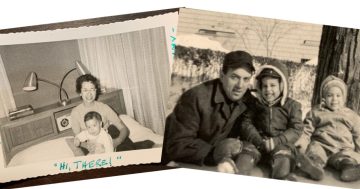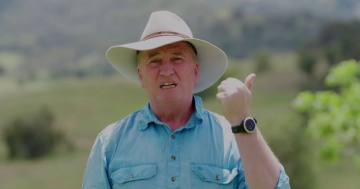Lisa Earle McLeod* says disappointments, even tragedies, can be dealt with by adhering to a few rules, sensitively applied, that can ward off depression.
 Have you ever been really disappointed about something and then had someone tell you to cheer up?
Have you ever been really disappointed about something and then had someone tell you to cheer up?
How does it make you feel? Generally speaking, telling someone to cheer up when they’re disappointed doesn’t work.
Instead of helping you cope with your emotions, telling you to cheer up is a request to change your emotions.
The challenge is, we don’t like to experience sadness, our own or anyone else’s, but sadness is part of the human experience.
Denying sadness numbs us to joy.
Here are three things to help yourself and the people around you deal with disappointment.
Validate the pain:
My daughter recently lost out on a house she wanted. She and her husband were beaten out by a better offer.
They had their hearts set on the house, and were very disappointed.
My inclination was to immediately tell her all the reasons there was a better house out there for them.
Intellectually, she already knows this herself.
They’ll find something, but in the moment of disappointment, people need someone to see their sadness.
The best thing I could do was say: “I’m so sorry, that was a really cute house.”
Validating someone’s pain doesn’t make it worse.
Instead, it tells them you’re willing to step into their space and share it.
For big, deep sadness, like the death of a loved one, you need someone unafraid to sit with you in your pain.
Allow space for wallowing:
We recently lost a major business project to another firm.
What made it worse was, I didn’t represent us very well during the final round of decision-making.
So in addition to disappointment, there’s also regret and embarrassment on my part.
I gave myself 24 hours to feel bad.
This enabled me to fully process what happened, before trying to rebound.
My children and colleagues will tell you, I have no patience for whining.
When confronted with setbacks, one of my most oft used expressions is — on the scale of human suffering, worse tragedies have been endured.
It’s okay to be sad, and if it’s a fixable problem, i.e. find another house or business deal, put a time frame on your wallowing.
When my younger daughter didn’t get her first choice of university we decided a full weekend of wallowing was appropriate.
It gave her a chance to lean into her disappointment, assess it and make peace with the loss. After that, move on.
Having said that, there’s not always a sunny side.
Own the broken part:
Some disappointments don’t have a next time.
In those cases, experiencing the sadness is even more crucial.
Trying to keep it at bay only prolongs it. It stifles your other emotions.
Talk to anyone who has lost a loved one, and they’ll tell you, long-term unprocessed sadness eats away at your soul.
If on the scale of human suffering, your heartbreak is a true tragedy, there’s no avoiding the pain.
It’s there, and will surround you, hovering near, no matter how hard you try to ignore it.
People often think giving in to sadness is weak.
It’s the opposite; giving yourself permission to truly feel your sadness takes strength.
Owning your heartbreak is what gives you the strength to love again.
Sadness and setbacks are part of being alive.
Sometimes they come in small doses, and sometimes they come in bigger wallops than we ever imagined.
The only way around it is through it.
*Lisa Earle McLeod is best known for creating the popular business concept Noble Purpose. She is the author of Selling with Noble Purpose and Leading with Noble Purpose. She can be contacted at mcleodandmore.com.
This article first appeared on Lisa’s blogsite











